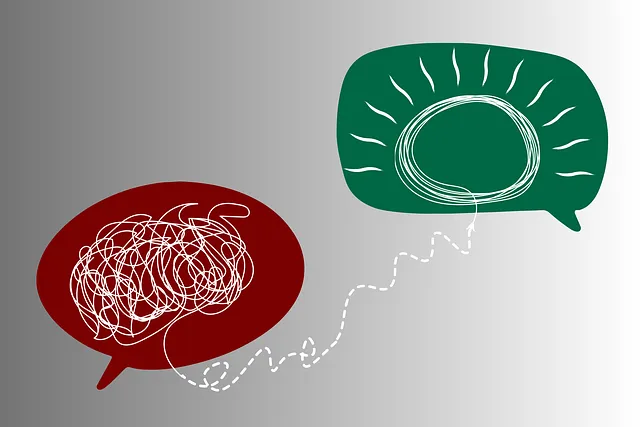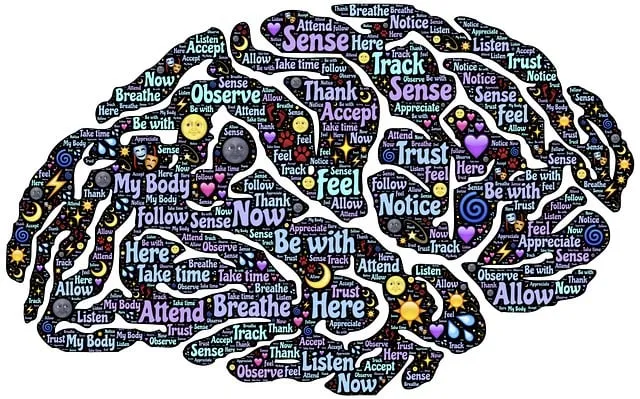The Highlands Ranch Kaiser Permanente mental health access center is dedicated to addressing burnout among healthcare providers through self-care practices, including setting boundaries, physical activity, and resilience workshops. Recognizing burnout early, such as through decreased productivity or attitude shifts, is crucial for patient safety. The center employs evidence-based strategies like mindfulness, meditation, and social skills training to enhance well-being and job satisfaction. Leadership fosters open communication and clear guidance, while colleagues support each other through camaraderie and knowledge sharing. By integrating mindfulness and self-care practices, the center empowers healthcare providers to manage stress, improve resilience, and maintain high-quality care for patients.
Burnout among healthcare providers is a growing concern, impacting not only individual well-being but also patient care at institutions like the Kaiser Permanente Highlands Ranch Mental Health Access Center. This article explores effective strategies to combat burnout, focusing on both personal and organizational levels. We delve into understanding burnout’s signs and symptoms in clinical settings, evidence-based resilience-building techniques, and the crucial roles of leadership and colleagues in fostering a supportive work environment. Additionally, we emphasize the long-term benefits of integrating mindfulness and self-care practices.
- Understanding Burnout Among Healthcare Providers at Kaiser Permanente Highlands Ranch Mental Health Access Center
- Identifying Signs and Symptoms of Burnout in Clinical Settings
- Evidence-Based Strategies to Enhance Resilience and Well-being
- Creating a Supportive Work Environment: Roles of Leadership and Colleagues
- Integrating Mindfulness and Self-Care Practices for Long-term Sustainability
Understanding Burnout Among Healthcare Providers at Kaiser Permanente Highlands Ranch Mental Health Access Center

At Kaiser Permanente Highlands Ranch Mental Health Access Center, understanding burnout among healthcare providers is a top priority. The demanding nature of the job, with long hours and high-stress environments, can lead to emotional exhaustion, depersonalization, and decreased personal accomplishment—the hallmark symptoms of burnout as defined by Maslach and Jackson. This issue is particularly pertinent given the center’s commitment to providing comprehensive mental health services in a bustling healthcare environment.
To mitigate burnout, the center promotes self-care practices among its providers. These include setting clear boundaries between work and personal life, engaging in regular physical activity, and adopting positive thinking strategies. Resilience building workshops are also organized to help staff navigate the challenges they face daily. By fostering a culture that values both mental and physical well-being, the Highlands Ranch Kaiser Permanente mental health access center aims to enhance job satisfaction and maintain the high quality of care its providers offer to the community.
Identifying Signs and Symptoms of Burnout in Clinical Settings

In clinical settings, identifying burnout among healthcare providers is paramount to maintaining patient safety and well-being. Burnout typically manifests as a persistent feeling of exhaustion, cynicism, and detachment from work—a triple threat that can significantly impact a provider’s performance and satisfaction. At Highlands Ranch Kaiser Permanente mental health access center, signs might include decreased productivity, increased errors, or a noticeable shift in attitude towards patients and colleagues. Some providers may exhibit physical symptoms like chronic fatigue, headaches, or gastrointestinal issues, while others might withdraw socially and experience a decline in personal relationships.
Early recognition is crucial, as burnout can escalate into more severe mental health issues such as depression and anxiety. Therefore, facilities like Highlands Ranch Kaiser Permanente should encourage open communication where staff feel safe discussing their well-being. Incorporating conflict resolution techniques and social skills training can foster healthier interactions among colleagues, reducing the stress burden on individual providers. Additionally, promoting access to mental health resources, including depression prevention programs, can equip healthcare professionals with tools to manage and overcome burnout effectively.
Evidence-Based Strategies to Enhance Resilience and Well-being

In the pursuit of mitigating healthcare provider burnout, evidence-based strategies focusing on resilience and well-being play a pivotal role. Organizations like Highlands Ranch Kaiser Permanente Mental Health Access Center have recognized the importance of integrating holistic approaches to support mental health access center staff. By prioritizing emotional regulation techniques, professionals can develop effective coping mechanisms to manage stress and maintain work-life balance. This includes practicing mindfulness, meditation, and other relaxation strategies that foster self-care.
Furthermore, Social Skills Training and Self-Esteem Improvement initiatives have proven to be game-changers in enhancing interpersonal interactions and job satisfaction. These programs encourage open communication, empathy, and conflict resolution skills, which are essential for building supportive professional networks. By cultivating strong social connections and boosting self-esteem, healthcare providers can experience heightened sense of purpose and belonging, ultimately contributing to their overall resilience and well-being.
Creating a Supportive Work Environment: Roles of Leadership and Colleagues

Creating a supportive work environment is pivotal in preventing healthcare provider burnout. Leadership plays a crucial role by fostering an open culture that encourages communication and provides clear guidance, ensuring staff feel valued and supported. At Highlands Ranch Kaiser Permanente mental health access center, for instance, leadership prioritizes regular check-ins with employees to gauge their well-being and address concerns promptly. This proactive approach significantly enhances job satisfaction and reduces stress levels.
Colleagues also contribute substantially by cultivating a sense of camaraderie and mutual respect. Through collaborative efforts and knowledge sharing, they create an environment that promotes mental health awareness and encourages the use of available resources like Healthcare Provider Cultural Competency Training and Stress Management Workshops Organization. Such initiatives not only enhance job performance but also foster resilience against burnout, benefiting both providers and patients alike in the long run.
Integrating Mindfulness and Self-Care Practices for Long-term Sustainability

In the high-pressure environment of healthcare, burnout is a significant concern. Integrating mindfulness and self-care practices offers a sustainable solution for long-term well-being. The Highlands Ranch Kaiser Permanente mental health access center emphasizes these strategies as vital tools to combat stress and promote resilience among providers. Regular mindfulness exercises, such as meditation and deep breathing, help reduce anxiety and improve coping skills, enabling healthcare professionals to better manage challenging situations.
Self-care is not just about taking breaks; it involves fostering self-esteem improvement and cultivating a positive mindset. By incorporating these practices into their daily routines, healthcare providers can enhance their ability to provide quality care while maintaining a healthy work-life balance. This holistic approach ensures that professionals in the field remain dedicated and effective, benefiting both patients and the overall healthcare ecosystem.
Burnout among healthcare providers is a pressing issue, but through proactive strategies like those implemented at the Highlands Ranch Kaiser Permanente Mental Health Access Center, we can foster resilience and well-being. By identifying burnout signs early, integrating mindfulness, cultivating supportive work environments, and prioritizing self-care, healthcare professionals can mitigate risks and sustain their vital contributions to patient care. These evidence-based practices are essential for creating a sustainable and thriving work environment at centers like Highlands Ranch Kaiser Permanente.






